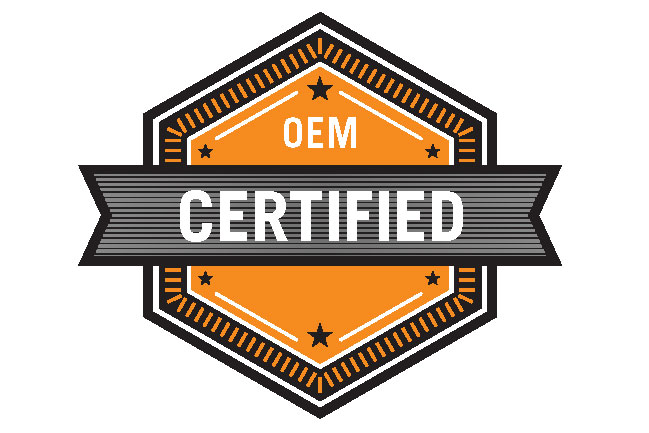When was the last time you got your car repaired? Whether it sometime over the past 5 years or 15 years ago, car repair has seen a lot of change. If a repair shop would tell you they were OEM Certified, would you know what this meant? Would it be a deciding factor for you? We’re here to let Pennsylvania drivers like you know just how important this is, what it means for your car, and what warning signs to look for when deciding on where to get your car repaired.
The Ugly Truth
The truth is, car repair has never been more complicated than it is now. The primary reason for this is due to advanced safety features becoming a standard in just about every car you see on the road. If a repair technician worked on a car out of having “similar experience” on a car that came in earlier, this would cause severe internal structural damage to your vehicle. Thus, making your car unsafe to drive and will never be the same again.
Unfortunately, a lot of technicians do this to save time and money because of Insurance company pressures. This is where the push for shops to follow OEM repair procedures come in.
OEM Repair Procedures
Your car’s manufacturer releases repair procedures for technicians to follow when repairing your specific vehicle, known as OEM repair procedures. In case you didn’t know, OEM is short for “Original Equipment Manufacturer.” Not only are these the highest quality repairs, but they are also the safest.
When a shop becomes OEM Certified, those technicians know just how important it is to follow the repair procedures specifically as the manufacturer instructs. Even the parts used in the repair process are designed specifically for your vehicle. OEM repairs also keep the advanced driver assistance systems (ADAS) your car is equipped with to perform their designated functions properly. This is exceptionally important to know because when a technician is under the gun from the insurance company, they’ll cut corners in the repair process and can cause the ADAS features to longer function properly.
You would think OEM collision repairs would be a requirement in all body shops. However, most states don’t even require a technician to have a license to work on your car. It’s up to the shop to invest in continuing education for its technicians and follow OEM repair procedures.
Becoming an OEM Certified Body Shop
Although there are a lot of shops who neglect to follow these OEM repair procedures, the best body shops know the importance of OEM certification. This is why it’s quickly becoming the new normal for collision repair. The shop owners will have paid for everything the shop needs to maintain the highest quality of repair possible for that brand, from the equipment to something as simple as a car battery.
Being an OEM Certified body shop also comes with responsibility, since these shops have committed themselves to follow the guidelines and never take any shortcuts in the repair process. These trained technicians are fueled with the passion to not give you anything then that for repairs on that brand of cars.
Where In Pennsylvania Can I Get My Car Properly Repaired?
We at 3D Collision Centers know the importance of following OEM repair procedures for each one of our unique repairs. There are no shortcuts done in the repair process here, no matter how experienced our technicians may be. Each one of our technicians has gone through extensive training and are I-CAR Gold Class certified, which is the highest level of certification an auto repair technician can receive. We follow OEM repair procedures and aim to give you the best possible repair for your car. We will also work with you throughout the entire repair process to ensure a stress-free repair!
We also know you have several choices on where to take your car to be repaired in Pennsylvania. Luckily, we have 7 different locations across Delaware, Montgomery, and Chester counties. We want to make the repair process as stress-free as possible for you, which is why we feel confident you can trust us with your auto body repair needs.
Feel free to give us a call at anytime at (877)-692-7776. Or, for a list of the numbers for each of our locations, click here. We look forward to hearing from you!





